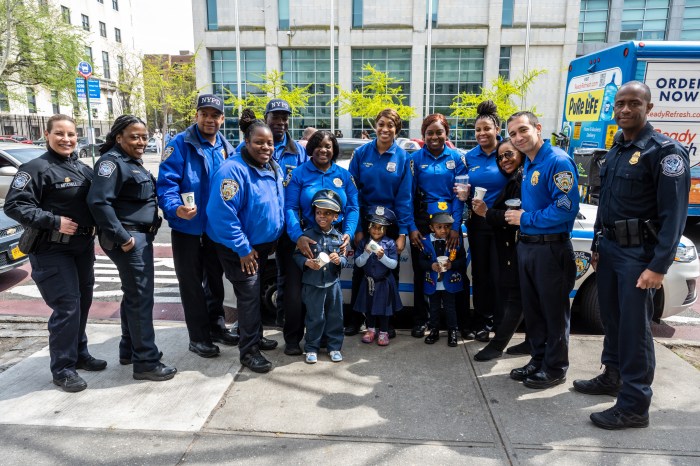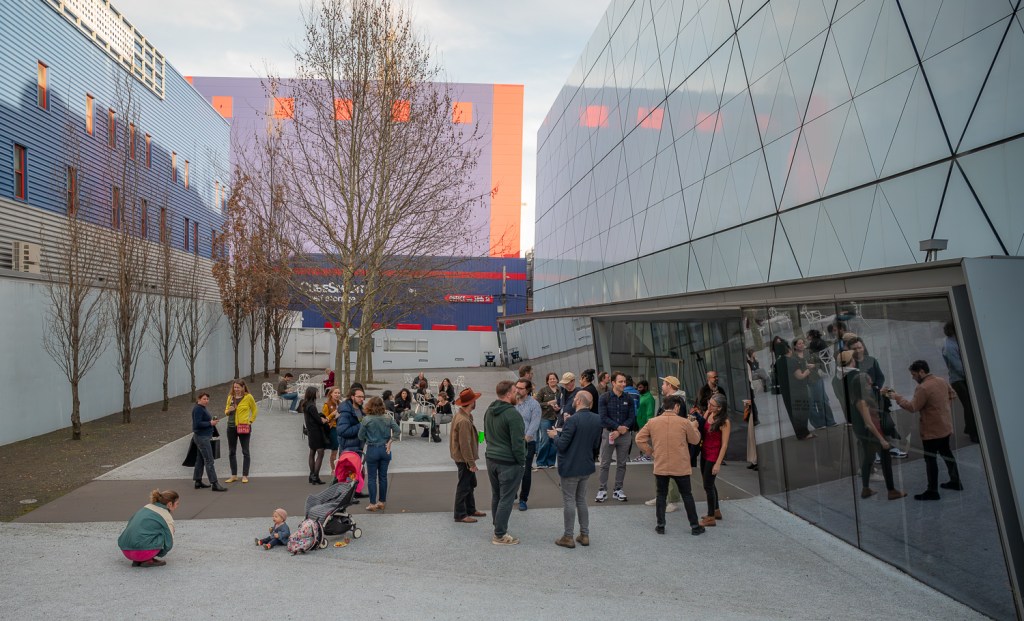Four months later when no one was looking they came back. In January, The Queens Courier ran a series of articles about a homeless encampment under a stretch of the abandoned, elevated railway that crosses Atlantic Avenue at 100th Street.
As temperatures plummeted to unbearable lows this past winter, Ray Carrero of the mayors community assistance unit (CAU) sought to convince the group of homeless individuals living under the tracks to accept shelter. They refused. And they left the encampment when Carrero told them he would bring in a crew to clean up and seal off the site.
But "Mom," the de facto leader of the group, vowed that they would return and the group followed through on that vow.
A few weeks ago, Carrero received a call from a property owner across the street from the site. The man complained about homeless individuals breaking through the barriers set up by the city.
"I walked across the track to the other side and checked it out," Carrero said. "The hotel was back."
So was a mammoth mound of garbage covering the embankment sloping downward toward the adjoining property of the Long Island Rail Road substation.
The city clean-up crews had cleared away piles of trash back in January, but the group had made an even bigger mess this time clothing, food, mattresses, bottles, cans, broken electronic equipment and crates blanketed the hill.
They had also forced their way into the boarded-up LIRR building.
An MTA homeless outreach team went to the site soon afterwards and met with members of the group, offering them access to city homeless services. But, once again, they all turned down those services.
On a gray Tuesday morning this week, about two dozen bulky city workers gathered on Atlantic Avenue. Included among them were the Bushwick "Wildcats," part of the Human Resource Administrations work experience program for welfare recipients.
Carrero stood with a team of MTA employees inside the LIRR substation compound discussing the logistics of the new clean-up operation. Instead of going through a narrow space on Atlantic Avenue, they decided, the Wildcats would climb the hill from its base, after Transit Authority workers ripped down the chain-link fence separating the embankment from the substation.
The MTA has plans to install a high-security fence at the site, making it difficult for the group to set up a new encampment.
Earlier in the day, a pair of MTA police officers had searched the tracks above for more homeless. They came up empty-handed.
"I dont think well be hearing from Mom anymore," one officer said.
After the fence came down, some of the Wildcats swarmed the hill and began clearing away trash, as others lugged full bags toward the avenue.
"This is one of the worst sites I have ever been to," said Bryant Chillious, a Brooklyn resident who has been with the Wildcats for the last six months.
Many of the HRA workers have themselves been on the brink of homelessness and poverty, and they see this minimum-wage program as an opportunity to get back on their feet.
Chillious hopes to get a job with the Sanitation Department in the near future. "This is pretty much a stepping-stone," he said, gripping a large shovel before he began digging in with the rest of the crew. "They want to see how well you do with time management and working with your peers."
A few Wildcats held back, however, deterred by the filth confronting them. "Im telling you right now either you work or you go home," a female supervisor said firmly to one man.
But most of the crew worked in earnest, and by the end of the day, they had cleared away much of the garbage. On Wednesday, they went back to finish the job.
The citys budgetary woes have hampered Carreros attempts at outreach, but he is still determined to confront situations like the Atlantic Avenue homeless encampment.
"Ive lost a number of crews that were available to me" he said. "It just means rearranging your priorities, and trying to make things work, regardless."
Right now, his priority is continuing the lonely battle against street homelessness.

































